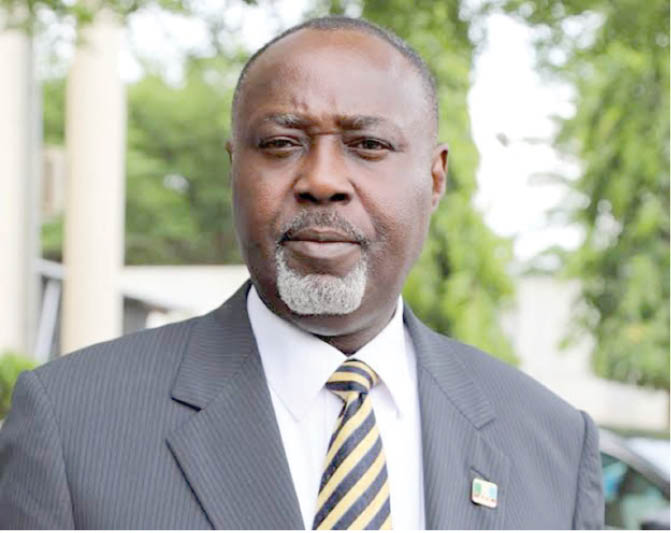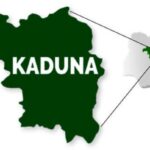Chief George Moghalu is the managing director of the National Inland Waterways Authority (NIWA). In this interview, he spoke on how the organisation is helping to decongest the seaports.
What are the challenges you face at the NIWA?
We are holding meetings and moving up and down on waterway security, and making sure that the vessels are seaworthy is also a challenge. Making sure that the drafts are all-year-round maintained is also a challenge. Very soon, in this 2021 procurement, we are going to ensure that the routes would be surveyed to make sure our records are up to date.
You have advocated moving cargoes from Lagos seaports to the Onitsha inland port, is there any progress?
Actually, the meeting was among the management of NIWA, barge operators we have already licensed, representatives of the Nigerian Ports Authority (NPA) and the president of the Barge Owners Association of Nigeria. We met to look at the programmes we have, one of which has to do with the multimodal transport system – the movement of cargo between Lagos and Onitsha, which is also meant to ease traffic on our roads.
I have also met with the Onitsha Chamber of Commerce, Importers Association of Nigeria in Nnewi, still in Anambra State. I also met with the traders’ association. That tells you the extent we have gone in this regard. And at every meeting, we had in attendance representatives of the different traders’ associations and those of the importers.
How viable is the Onitsha port process?
First of all, you must understand the reasons behind establishing an inland port. It is to create alternative means of transportation of cargo and persons.
The Onitsha port, as far as I am concerned, is viable. It is about us making it viable since it has not been used before. It was only during my tenure that the first commercial barge with cargoes came to Onitsha port. But don’t forget that it is the same Onitsha river port that Julius Berger is using to move all the consignments and equipment they are using to construct the second Niger bridge. It still came by water, so what channel did they use to bring the consignments that they are using to build the second Niger bridge? Where is the channel Sterling Oil is using to move cargo between ports? It is the same channel.
For now, we are concentrating on ensuring that we maintain our channels to make them all-rounder and carry large barges.
What is the container-handling capacity of the port?
The Onitsha port has the capacity to take about 1,000 containers in a month. But Onitsha is not their last port of destination. When they (cargoes) arrive, they are moved. Those who imported them will clear them. Onitsha is not yet a port of destination. These goods are cleared at the ports of destination and moved to Onitsha.
It is for easy logistics; then the owners carry their consignments to their warehouses as they are not designated to be packed at the Onitsha river port, which could occupy the entire space. As consignments come, they go, the space still remains.
What is the charge for moving cargoes via this means?
The only thing I can tell you now, with regard to charges, is that it is going to be cheaper than moving cargoes by road. It may not be necessary to give you an idea now because the modalities are still being worked out. But you can be assured that moving your container from Lagos to Onitsha by water will be cheaper than road.
How many barge operators have you licensed so far?
We have licensed eight operators; more have applied, but we are being careful because we have a standard operating manual, which requirements we strictly insist the applicants have to meet at the same time. We also don’t want to lose sight of the fact that the NPA also licenses barge operators. So we try to synergise our operations so that our standards would not be compromised.
How do you address cases of insecurity in the Niger Delta waterways?
Even on the road, there are security challenges. There are security challenges everywhere. And there is no way we will discuss movement of cargoes without looking at the security challenges. But it is a case of getting everybody involved, the navy, police, NIWA police, the marine police, even the local communities. This is because in security, everybody is concerned and involved. We are concerned about it, and we are addressing it. We are surmounting and addressing the ones we have now. It will be as soon as possible, I can assure you of that.
Don’t you think truck owners may frustrate the process?
We will do everything to resist them since they are going to do everything to ensure that we don’t succeed. The only way we can resist them and it will be clear to them is when we succeed. That is why my determination and that of NIWA’s management is for us not to compromise. We are determined to do it.
What is the revenue potential of this move?
As it is today, certainly it will increase our revenue. Don’t forget that by the time our waterways are put into active use, we will save our infrastructure and the money we are spending on repairing and rebuilding roads won’t be again. Go and check the budget and know how much we are spending on building roads.

 Join Daily Trust WhatsApp Community For Quick Access To News and Happenings Around You.
Join Daily Trust WhatsApp Community For Quick Access To News and Happenings Around You.


